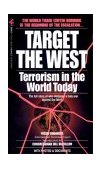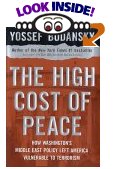|
|
Qayyum on Kashmir: Pragmatism not Rhetoric
PROF.
K. N. PANDITA
Recently the print media in
India reproduced the substance of a statement of the former Prime Minister of
Pok, Sardar Qayyum Khan, on the solution of Kashmir issue. Sardar Qayyum, a
historic figure from the old guard, is the most respected leader of PoK whose
views and comments on Kashmir issue have always carried weight with the
observers and policy planners. He has himself been an active player on the
stage.
If the Indian press has quoted the Sardar correctly then
one can say there is more of pragmatism than rhetoric what he has said. Sardar
Qayyum has always been very careful and considerate in regard to his statements
on Kashmir issue.
In concrete terms the Sardar has stressed upon
two points: (a) Kashmir cannot join Pakistan, and (b) independence is not
advisable for Kashmir. What then is his formula? The impression that we gather
from his statement is: (a) the two Kashmirs should be granted autonomy status
(b) travel between the two parts of the State should become very easy and
frequent.
This means that the position of India and
Pakistan should be brought on an even keel in regard to the State. Both will
enjoy sovereignty over their respective parts. Both will create conditions for
popular rule in their respective parts accepting secular democracy as the
political arrangement and a systematized bilateral relationship between the two
parts with the respective sovereign states of India and Pakistan retaining
control over defence, communication, foreign relations and currency. Even the
last mentioned item could be restructured.
With this as the basis of relationship, the next
step would be an international guarantee backed up by UN for security and
sanctity of LoC, no cross border infiltration, dismantling of training camps
inside the territories of either part of Kashmir and complete cessation of
anti-India/Pak propaganda through print and electronic media. . Having achieved
that, the next step would be demilitarizing of both parts of Kashmir through an
agreed formula perhaps under the supervision of the UN Observer Team. The main
idea is to restore normalcy in Kashmir. The formula has to be applicable to the
Northern Areas as well. However, the disputed 5000 square kilometer territory of
the State ceded by Pakistan to China has to be subjected to trilateral talks –
China, Pakistan and India for a final resolution. A separate agreement has to be
arrived at regarding Siachin Glacier dispute.
These could be imagined as the broad contours of
Sardar Qayyum Khan’s formula. He has not elaborated it but this is what one can
presume to be the broad outline.
Assuming that this is a sensible and pragmatic
formula and even a workable one, both countries will have to make some
sacrifices to break the jinx.
Islamabad and New Delhi both have to be
realists. The fact is that there is discontent on a large scale in NA partly as
the historical baggage and partly owing to narrow and somewhat selfish and
intransigent policy of the rulers in Pakistan over the past half a century. In
regard to NA, Pakistan has been guided primarily by its strategic interests and
secondarily by China’s policy planners. Therefore she has to come out of that
syndrome and take some realistic steps. After the Humudur Rahman inquiry in the
Bangladesh crisis became public, it is time for Pakistan not to depend on
religion as a political instrument in negotiating a settlement of Kashmir with
India.
With the US military presence in Central Asia
including Afghanistan, the contours of strategic importance of NA have
considerably changed. Public demand for liberalized governance, non-sectarian
and democratic dispensation, and aspirations for regional development cannot be
suppressed any more. Autonomy for Indian part of Kashmir has to be met by a
corresponding phenomenon in NA and PoK. This means practical involvement of the
people of all the segments of the State in the construction of their destiny,
which virtually means the enjoyment of the right of self-determination.
This formula entails no transfer of territory or
of population, the guiding principle of the UN in a search for resolution of
complex bilateral or multilateral issues world over. But of course it must leave
the option for the resettlement of two categories of people in any case. The
first category is that of the religious minority of Kashmiri Pandits whose
ethnic cleansing in 1990 was engineered by the sponsors of armed insurgency. The
second category is that of the state subjects who were obliged to migrate to one
or the other side of the LoC in 1947. In regard to the former category, the
issue is between the governments in Srinagar and New Delhi on the one hand and
the exiled Pandits on the other. In the case of the latter category, the matter
is to be sorted out by the governments in Srinagar and Muzaffarabad and the
displaced persons on either side of the LoC. The two issues though separate in
nature yet need to be clubbed in order to formulate the criterion for return and
rehabilitation. Their concentrated rehabilitation in their places of origin
should be a strong option as recommended by the UN Human Rights Working Group on
Internally Displaced Persons.
New Delhi also needs to make cool and objective
analysis of the current situation. Whatever the reasons, the ground reality is
that the majority group in the valley stands alienated from India beyond
reconciliation. It was that way ever since the accession in 1947. It is a
different matter that in secular democratic dispensation, the valley of Kashmir
has prospered maximally in terms of education, economy and living standards. But
that is no reason for closing the eye to harsher realities. New Delhi must also
realize that its much - touted secular dispensation has collapsed miserably in
Kashmir, the Pandits have been subjected to total ethnic cleansing and Kashmir
has been Islamized more under the so-called democratic dispensation in
post-militancy period. As such India has only fractured moral right to be in
Kashmir.
New Delhi also needs to understand that the
subject of accession of the State to India in 1947 made by the ruler is
debatable from the viewpoint of the religious minority of the valley. The basis
of the accession, so frequently stated by its author Sheikh Abdullah and equally
forcefully endorsed by Pandit Nehru was the concept of “secularism” (call it
Kashmiriyat or Rishism or Sufiism or whatever you may). This concept was
rejected as trash and thrown into dust in 1990 as a result of anti – India
insurgency. The innocent Pandits were massacred and the entire community was
hounded out of the valley. What is more, the Congress-NC combine never ever
spoke of conducting an inquiry into the why and how of the rise of communal
forces in Kashmir. As far as the Left’s Kashmir policy is concerned, the
Adhikari thesis remains in place. Therefore it means that the accession of
Kashmir to India on the basis of secularism has been belied. As such the
religious minority reserves its right to a homeland in its place of origin and
more so when autonomy status is conferred on both parts of the State as a
bilateral deal.
At the same time there are some harsh realities
facing Islamabad. It has not been able to bring about the secession of the State
from Indian Union through sheer force of arms, which it tried thrice in the
past. The armed movement in Kashmir has now been recognized by the entire world
as an extended Islamic terrorism and the US State Department has declared
militant organizations operative in Kashmir as terrorist groups. India has
successfully manipulated the world opinion in her favour in this regard taking
shelter behind 9/11. She has shown her extraordinary resilience in tackling the
insurgency by successfully enforcing the stick and carrot policy. After all
while handling a decade and a half - old armed insurgency, she has gained some
insights into the Kashmirian psyche. Therefore what is the option left out for
Islamabad? Virtually none except an outright war with India. Is she prepared to
take the risk of starting a nuclear war? Certainly not. Will she continue to
keep the pot boiling meaning keep insurgency going on in Kashmir? Certainly she
cannot because it is eating into its fragile economy and fractured civil
society.
The political class in PoK and particularly its
strong London-based Diaspora should stop dreaming about the five autonomous
regions of the State and the formation of a Confederation. That is not going to
happen. Likewise, the majority group in the valley should understand that it is
the Kashmiri on their side who is getting killed in the ongoing conflict. They
have to put an end to it before any violent reaction surfaces. They must also
understand that the Pakistani military regime has challenged the Wahhabi diehard
anti-Americanism as resolutely as the Pentagon has. This harsh but pragmatic
writing on the wall has to be read in conjunction with the Humudur Rahman
report.
In view of these facts, one is tempted to say
that the formula offered by Sardar Qayyum Khan seems to be the least offensive
either to India or to Pakistan. It also takes into account the genuine
aspirations of the people of all the regions in Kashmir. It has a fine element
of face – saving attached to it. Above all it adequately meets the stipulations
of the UN resolutions and the Shimla Agreement. While Indo-Pak dialogue is going
on, it is highly desirable that both sides pay attention to what the Sardar has
in his mind.
(The author is the former Director of the
Centre of Central Asian Studies, Kashmir University, Jammu & Kashmir, India.)
|


